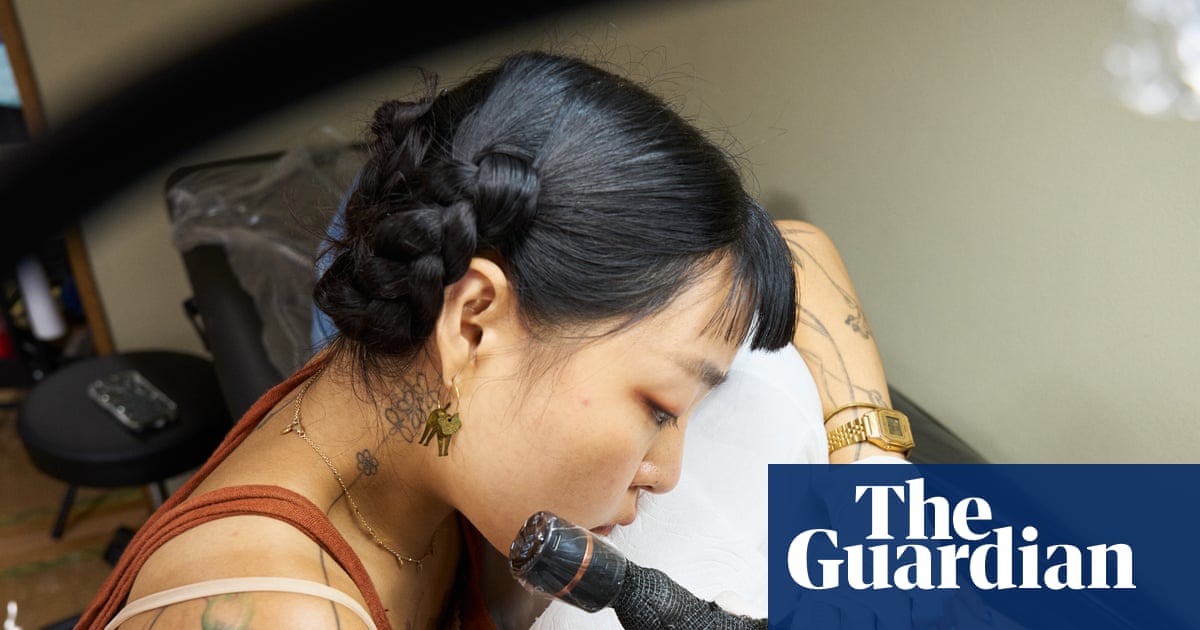
"Outside Seoul's northern district court on Friday, Kim Do-yoon stepped into the cold air after another hearing in his appeal. His crime: tattooing a satisfied client. I didn't come with high expectations today, says Kim, known professionally as Doy. Just weeks earlier, South Korea's parliament passed the tattooist act, ending 33 years of tattooing being restricted to doctors. The change will take effect in 2027, when a national licensing system is introduced. Until then, tattooing without a medical licence continues to be technically illegal."
"For Doy, the legal shift has arrived too late: his prosecution for tattooing a celebrity which began in 2019 continues despite the law being passed. But, like many other artists in South Korea, he welcomes the new legislation and hopes it will bring his industry out of the shadows. Creating something beautiful, in hiding' Tattoos in South Korea have long been associated with organised crime. Some public pools, bathhouses and gyms still ban visibly tattooed people."
A new tattooist act in South Korea ends a 33-year restriction that deemed tattooing a medical act and reserves licensing for doctors. The law takes effect in 2027 with a national licensing system, but tattooing without a medical licence remains technically illegal until then, leaving some artists facing prosecution. Tattoos have been tied to organised crime and social stigma, though younger generations increasingly view tattoos as personal expression. A large shadow economy developed as few doctors offered tattooing, and industry estimates suggest millions of people have permanent or semi-permanent tattoos.
Read at www.theguardian.com
Unable to calculate read time
Collection
[
|
...
]